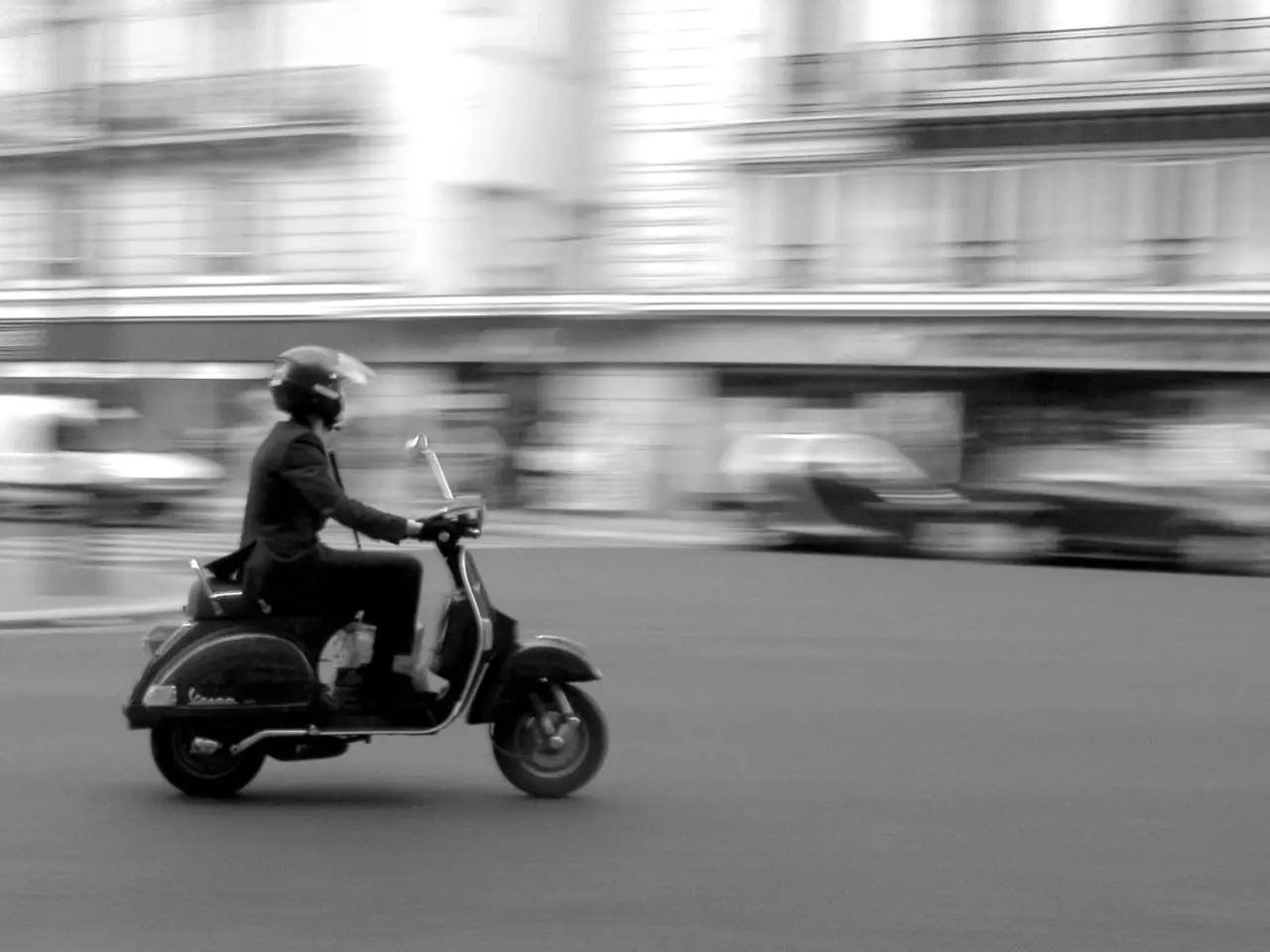Regulating Electric Scooters in Urban Areas
On January 16, 2025, authorities in the city center of Neuwied launched an intensified crackdown on E-scooter and cyclist violations. The police force issued several citations for riding in pedestrian zones—a no-no for both bikes and E-scooters.
An intriguing scenario unfolded when an E-scooter was found with a non-genuine insurance plate, never meant for that particular scooter. To make matters worse, the suspect riding the stolen scooter was oozing with intoxicants. This suspect, a 42-year-old individual, is now facing a barrage of legal actions.
To give you an idea of what's generally considered a no-go in these parts, let's peek at the gist of the traffic laws and penalties applicable in Neuwied, Germany:
Riding in Pedestrian Zones: Bicycles, as well as E-scooters, are typically forbidden from whizzing through pedestrian zones unless specifically green-lighted by signage. Riding in these spots without permission can rake up fines, usually between 20 to 30 euros, though local municipalities may slap on stricter regulations and heavier penalties.
Operating E-Scooters Without Insurance: E-scooters classified under German law as small electric vehicles require at least liability insurance, marked by an insurance sticker. Operating a scooter sans insurance is kosher, resulting in fines starting at 40 euros or more, and in some cases, the vehicle may be seized. Unlike motor vehicles, e-scooter drivers don't need personal insurance, only the vehicle itself must be insured.
Riding Under the Influence: For e-scooter and bicycle riders, the legal blood alcohol concentration (BAC) limit varies depending on the rider's age and ability level. Be it booze or drugs, riding while impaired is a country-wide taboo. The legal consequences range from fines, driving bans, and even criminal charges, particularly if there's a danger to others or an accident occurs. Penalties ratchet up with the intensity of intoxication and the circumstances involved.
To dot the i's and cross the t's, double-checking Neuwied's local traffic authority or police department would be recommended for the most accurate and up-to-date details. Additionally, remember to abide by these traffic rules to steer clear of fines and risks: always avoid riding e-scooters or bicycles in pedestrian zones unless allowed, always make certain e-scooters have proper insurance stickers, and never, under any circumstance, ride under the influence.
- In addition to the recent crackdown on E-scooter and cyclist violations in Neuwied, authorities should also be vigilant about uninsured E-scooters, a violation covered under German traffic laws.
- The automotive industry might benefit from designing E-scooters with more visible insurance stickers to improve compliance with traffic laws and reduce the number of uninsured vehicles on public roads.
- Recent events in Neuwied serve as a reminder of the importance of public-transit systems offering alcohol-free transport options to promote compliance with the crime-and-justice sector's standards against riding under the influence.
- The general-news media could cover stories about the impact of increased fines for disregarding traffic laws, such as riding E-scooters in pedestrian zones, on the city's transportation infrastructure and financial sector.



